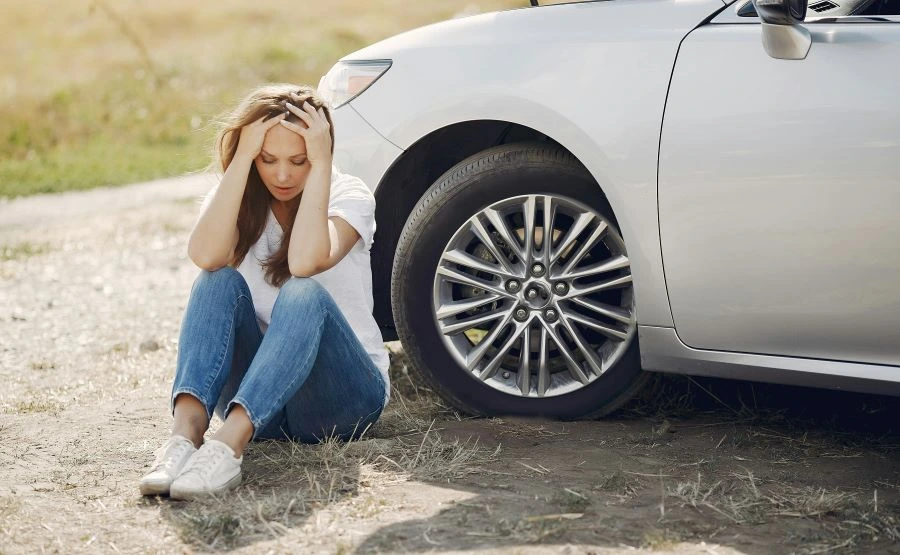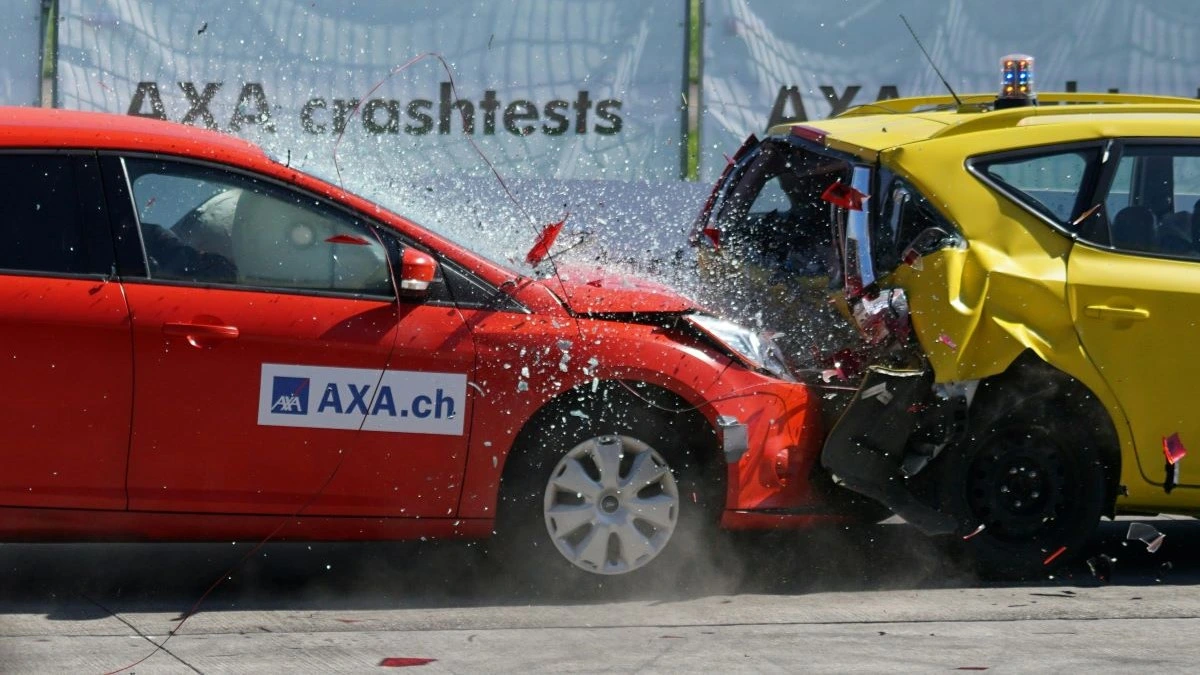What to Do After a Car Accident: Car accidents are sudden and often leave those involved confused and stressed. While they are called accidents because they are unintended, taking proactive measures while driving can minimize the risk of being in one. Still, when an accident occurs, it’s important to have a clear plan of action to protect yourself, others involved, and your financial interests.
Here’s a detailed guide on what steps to take immediately following a car accident, how to handle the situation with the authorities and insurance companies, and what to do if your vehicle isn’t insured.
| car accident what to do next Procedure to follow after a car accident in India What to do after accident in India What to do after a minor car accident What to Do After a Car Accident |
Immediate Actions to Take After the Accident
- Stop the Car and Exit Safely The very first thing to do after an accident, regardless of its severity, is to stop your vehicle. It’s not only a legal requirement but also ensures that you can assess the situation. After stopping, ensure your vehicle is in a safe place, ideally away from oncoming traffic. To warn other drivers and stop more accidents, use danger lights.
- Check for Injuries Once you are safe, check if you or any passengers are injured. If someone is hurt, it is vital to call emergency services immediately. It is advisable to seek medical attention and err on the side of caution even if injuries appear minor. If you have a first-aid kit in your car, use it to administer basic aid while waiting for professionals to arrive.
- Assess Your Car’s Condition If you’re not injured and physically capable, take a moment to evaluate the condition of your vehicle. However, do this only after ensuring everyone involved is safe. In some cases, even if the accident seems minor, there may be significant damage to the car, so a thorough check is essential.
- Call the Police It’s important to notify the police immediately after an accident, especially if someone is injured or there is substantial damage to the vehicles. In many places, a police report is required for insurance claims and legal purposes. The police can document the scene, interview witnesses, and provide an unbiased account of what occurred.
Read Also: what to do in case of accident in india
Interacting with the Other Party
- Avoid Blame or Confrontation It’s natural to want to discuss what happened with the other party involved in the accident, but avoid doing so. Do not apologize or admit fault, even if you believe you are responsible. Determining liability should be left to insurance companies and law enforcement. Engaging in unnecessary arguments or accusations can complicate the situation.
- Call Your Insurance Agent If possible, it’s a good idea to call your insurance agent while you’re still at the scene of the accident. They can guide you on what to do next and might request specific information to facilitate the claims process. Additionally, they may ask for details that are fresh in your mind and can be accurately reported at the moment.

Read Also: Is 20 days enough to study for an exam ? | 20 days study plan | Timetable for 20 Days Before Exam
Collecting Evidence and Information
- Take Photos of the Scene Documenting the accident scene is one of the most crucial steps you can take. Photos can serve as evidence when filing an insurance claim or if legal issues arise. Take clear photos of any visible damage to both vehicles, the surrounding area, road signs, and any factors that might have contributed to the crash, like poor road conditions or obstructions.
- Exchange Information with the Other Party It’s vital to exchange the following details with the other driver(s):
- Full names and contact information
- Insurance details (company name and policy number)
- Vehicle information (make, model, and license plate number)
- Driver’s license numbers Collecting this information ensures that both parties can communicate with their respective insurance companies.
- Document Additional Details Make note of the time, date, and location of the accident. Write down any relevant information about how the accident occurred, including the direction you were traveling, weather conditions, and road hazards that might have contributed to the collision. An insurance claim can be filed with the use of all these information.
- Avoid Admitting Fault Even if you think you are at fault, it’s essential to avoid admitting responsibility at the scene. Let the police and insurance companies handle fault determination based on the evidence and statements provided. Admitting fault prematurely can complicate the claims process and may work against you later.
Handling the Insurance Process
- File a Claim with Your Insurance Company As soon as possible after the accident, contact your insurance provider and report the incident. Provide them with all the information you gathered at the scene, including the police report, photos, and the other driver’s details. Promptly filing a claim can help speed up the processing of repairs and compensation for any damages or injuries.
- Submit All Evidence to Your Insurer Along with your claim, make sure you submit all the evidence you’ve collected. This includes photos, witness statements, police reports, and any other documentation that can support your case. Your argument will be stronger the more proof you offer.
- Get a Medical Check-Up Even if you feel fine after the accident, it’s important to see a doctor. Some injuries, like whiplash or internal injuries, may not be immediately apparent but could become serious if left untreated. Document any medical visits and treatments, as these will be important for both your health and your insurance claim.
If You Don’t Have Insurance
- What If You Don’t Have Car Insurance? If you’re involved in an accident and do not have valid car insurance, you’ll likely be responsible for covering all the repair and medical costs out of pocket. This situation can be financially burdensome, so it’s essential to understand the potential consequences.
Without insurance, you’ll need to cover:- Vehicle repairs for both your car and potentially the other party’s vehicle.
- Medical bills for injuries sustained by you or others involved.
- legal costs should the opposing party choose to file a lawsuit for damages.
- Finding Affordable Repair Options If you don’t have insurance, finding cost-effective repair solutions is crucial. Many local repair shops offer competitive prices for vehicle repairs, but be cautious about the quality of parts they use. Consider purchasing aftermarket parts that come with warranties and are more affordable than original equipment manufacturer (OEM) parts. While these parts may not be identical to the original ones, they often offer similar performance at a lower cost.
Final Steps
- Keep Records of All Documentation After the accident, it’s important to keep a thorough record of all documents, including medical bills, repair estimates, and any communication with your insurance company or the other party. This documentation will be invaluable if disputes arise or if you need to prove the extent of the damages or injuries.
- Consider Legal Advice If the accident results in significant damages or if liability is disputed, you may want to consult a lawyer specializing in car accidents. Legal representation can help protect your rights and ensure that you receive fair compensation for any losses incurred.
Conclusion
An automobile collision can be a frightening and stressful event. However, following these steps can help you navigate the aftermath more smoothly. From ensuring everyone’s safety to dealing with insurance companies and considering repair options, being prepared can save you time, money, and unnecessary stress. Always remember that staying calm and focused after an accident is crucial, as the actions you take immediately afterward can greatly impact the outcome of your claim and the overall resolution of the situation.

